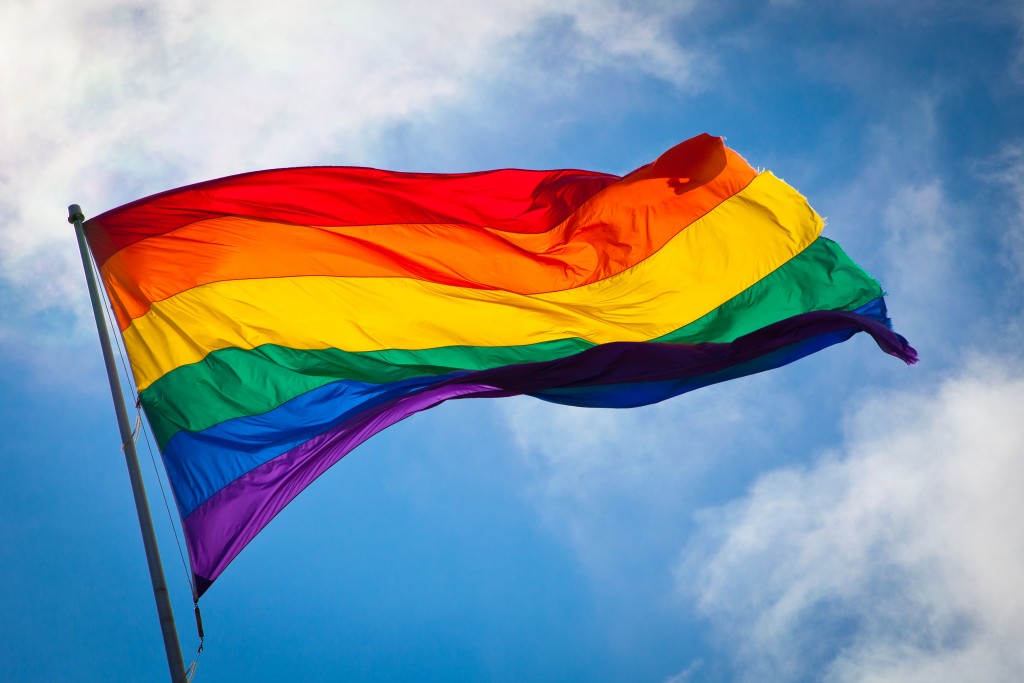February is LGBT+ History Month in Britain. During this annual month-long observance, the UK puts the historic experiences of lesbian, gay, bisexual, transgender and intersex people (LGBTI+) and their fight for equal rights in the spotlight.
The aim of the month is simple: to raise awareness of, and combat prejudice against, LGBTI+ people, and to promote equality, diversity and inclusion across society.
February was chosen as LGBTI+ History Month as it coincides with the UK’s first major attempt to have the hugely discriminatory Section 28 legislation repealed. This law, introduced as part of the Local Government Act of 1988, prohibited the “promotion of homosexuality” in schools and elsewhere by local councils. On 7 February 2000, the then Labour Government introduced a new Local Government Act that sought to abolish Section 28. It took another three years to achieve this.
To mark LGBT+ History Month with a British Turkish hat on, T-VINE is doing a series of articles. Inthis article, we are looking at how anti-sodomy laws were exported to Cyprus during British colonial rule (1878-1960).
The British Empire exported a set of laws known as the Penal Code to its colonies. This included Section 377, which criminalised all sexual acts deemed ‘against the order of nature’. Even though it did not explicitly include the word ‘homosexual’, Section 377 was used to prosecute homosexual activity.
Britain decriminalised homosexuality in 1967 and the colonial era is over, but the UK’s Penal Code remains and continues to impact many of its former colonies.
In 2020, VICE World News host Zing Tsjeng investigated this legacy and said there are over 30 former British colonies still suffering from it. T-VINE looked at the experience of Cyprus specifically.
Before British rule, Cyprus was a part of the Ottoman Empire and Ottoman laws were in force for years after the British started to administer the island in 1878. As a part of the Tanzimat reforms, a new Ottoman Penal Code was adopted in Cyprus 1858 and homosexuality stopped being a criminal offence throughout the Ottoman Empire.
Ottoman legal tolerance of homosexuality in the island, ended in 1929 with the incorporation of the British Criminal Law Amendment Act 1885 into Cyprus law. Male homosexuality became a criminal act again, for the first time since 1858. There was no mention of female homosexuality in this law.
Cyprus gained its independence from Britain in 1960 but like many other former colonies, the Republic of Cyprus retained British colonial law almost in its entirety.
British anti-sodomy laws became Articles 171 to 174 of Chapter 154 of the Cypriot Criminal Code, punishing homosexual acts with up to five years’ imprisonment.
The island has been split into a Turkish North and Greek South since August 1974, with the South retaining control of the internationally recognised Republic of Cyprus (RoC), while in 1983 the Turkish side declared themselves as the Turkish Republic of North Cyprus (TRNC).
The Greek-administered RoC formally revised its Criminal Code in 1998. It followed Alexandros Modinos, a Greek Cypriot architect and gay rights activist, taking the Government of Cyprus to the European Court of Human Rights (ECHR). He won a landmark ruling in Modinos v. Cyprus in 1993.
TRNC the last territory in Europe to decriminalise sexual relations between men
It took much longer for the changes to come to the TRNC, and it came with controversy. In 2012, several people were arrested in the TRNC on charges of homosexuality, including former RoC Finance Minister Michael Sarris.
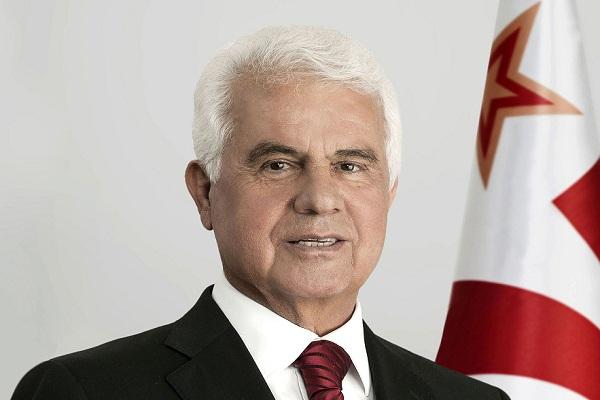
There was mounting pressure from local activists and Members of the European Parliament, including Marina Yannakoudakis and Michael Cashman, the actor-turned-politician and co-founder of LGBT charity Stonewall.
MEPs came to North Cyprus to lobby the then President Derviş Eroğlu to decriminalise homosexuality, who said he would sign the bill into law if it was presented to him by the TRNC Government.
Despite the expectation, decriminalisation didn’t take place until two cases were brought against the Turkish Cypriot Government. The first challenge came at the TRNC Constitutional Court and when that failed, at the ECHR.
On 27 January 2014, the newly-installed Republican Turkish Party (CTP) Government presented a bill to the TRNC Parliament to abolish Section 377 from the country’s criminal code.
President Eroğlu’s National Unity Party (UBP) were in opposition at the time and their MPs abstained from voting. Only one MP, Zorlu Töre, then of the Democratic Party-National Powers, voted against the bill.
With this vote in 2014, TRNC became the last territory in Europe to decriminalise sexual relations between consenting adult men.
Homophobia in Cyprus
Although this outdated British criminal legislation has now been overturned on both sides of the island, Cyprus still has a long way to go to overcome homophobic attitudes that prevail in the conservative Greek Cypriot and Turkish Cypriot societies.
In November 2016, queer groups launched an education campaign about coming out as gay in Turkish Cypriot society.
Part of the Unspoken / Konuşulmayan project, billboards carrying messages such as, “Big brother Kamil, I am a lesbian” and “Aunty Mediha, I am gay” were displayed across the TRNC in Girne, Mağusa, Lefkoşa, İskele, Lefke and Karpaz. However the posters were repeatedly defaced or ripped off. Eventually some of the councils removed the adverts completely.
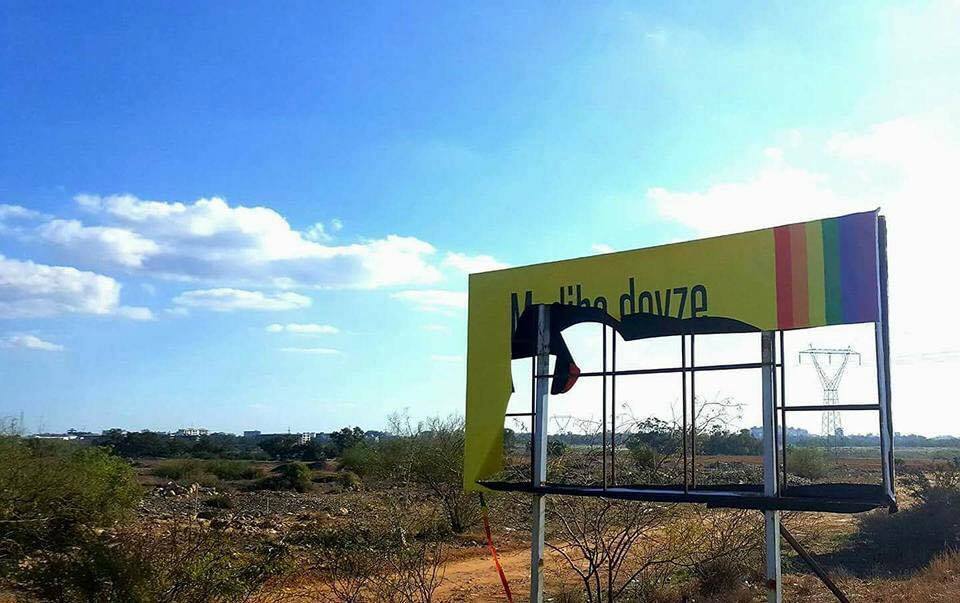
Conservative Turkish Cypriots also objected to a new round of billboard advertising promoting LGBTI awareness, which ran the following September.
Funded by the European Union, the ads by Kuir Kıbrıs Derneği[Queer Cyprus Association] carried descriptions of sexual orientation and gender identities such as “lesbian”, “gay”, “bisexual”, “straight”, “transgender” and “intersex”.
There are problems with conservatives in the South too, especially with the influential Greek Orthodox Church, which has historically stood against gay rights.
In 2019, there was an outcry in South Cyprus when Neophytos, the Bishop of Morphou and Greek Cypriot Orthodox prelate, made what many deemed to be homophobic and deeply offensive comments.
In a talk about ’spiritual meetings of dialogue’, the bishop claimed gay men gave off a specific smell and that homosexuality could be passed on to an unborn child if the pregnant mother has anal sex.
“It is, they say, a problem that is usually transferred to the child from the parents,” the Bishop of Morphou said, continuing, “And, they say, it happens … when the parents [indulge] in erotic acts that are unnatural.”
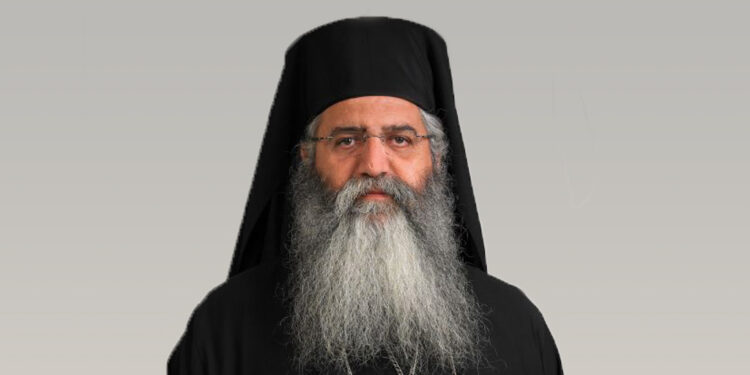
When recounting the story of a saint and a “beautiful young boy”, Bishop Neophytos also said that gay men were instantly recognisable because they gave off a “particular odour”.
The bishop was investigated for his controversial comments, but the Greek Cypriot police and Attorney General subsequently cleared him of hate speech.
Last November, LGBTI+ rights groups from across the Green Line teamed up to launch a new awareness campaign called My Right. The Kuir Kıbrıs Derneği in cooperation with KAOS GL produced 5 billboards, a series of social media posts and an awareness-raising video to address the discrimination, prejudice and marginalisation LGBTI+ people face in Cyprus.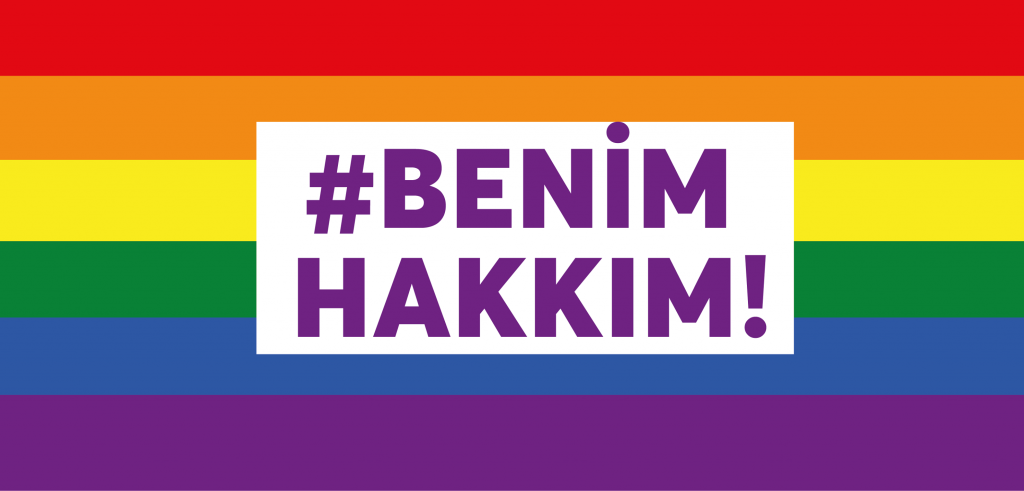
A spokesperson for Kuir Kıbrıs Derneği said at the time: “The ‘My Right’ campaign focuses on six different thematic areas where LGBTI+s frequently face discrimination and marginalisation: family, education, work, housing, health and life.”
The campaign was designed based on the findings of two studies published as part of the “Free LGBTI+ LIFE from Exploitation” project, which seeks to address the “systematic human rights violations” of the by LGBTI+ community in North Cyprus.
UK + Greek Cypriot governments pledge to promote LGBTI+ rights
In 2018, British Prime Minister Theresa May said she “deeply regrets” Britain’s role in criminalising homosexuality in its former colonies.
Last week, the Greek Cypriot and United Kingdom governments signed a Memorandum of Understanding on the ‘Protection and Promotion of the rights of LGBTI+ People in Europe and in the Commonwealth’. Stephie Dracos, the Minister of Justice and Public Order for the Republic of Cyprus and Amanda Milling, Minister of the Foreign, Commonwealth and Development Office of the United Kingdom, penned the agreement in a virtual witness, with Stephen Lillie, the British High Commissioner to Cyprus, in attendance in Nicosia.
In a joint statement, the two governments pledged ‘to promote and build an inclusive society where LGBTI+ people have the same opportunities and enjoy equal rights, without any form of discrimination’.
The MoU sets out closer cooperation between Greek Cypriot-administered Republic of Cyprus and the UK, who currently co-chair the Council of Europe’s European Governmental LGBTI+ Focal Points Network. Leveraging this platform and the Equal Rights Coalition, the two governments aim to promote LGBTI+ rights in the Commonwealth, as well as the benefits of diversity and LGBTI+ equality in the workplace.
The MoU on LGBTI rights only covers the southern part of the island. The Greek Cypriots and the UK have no formal relations with the TRNC, although British diplomats do hold regular meetings with the TRNC president and other Turkish Cypriot officials.


